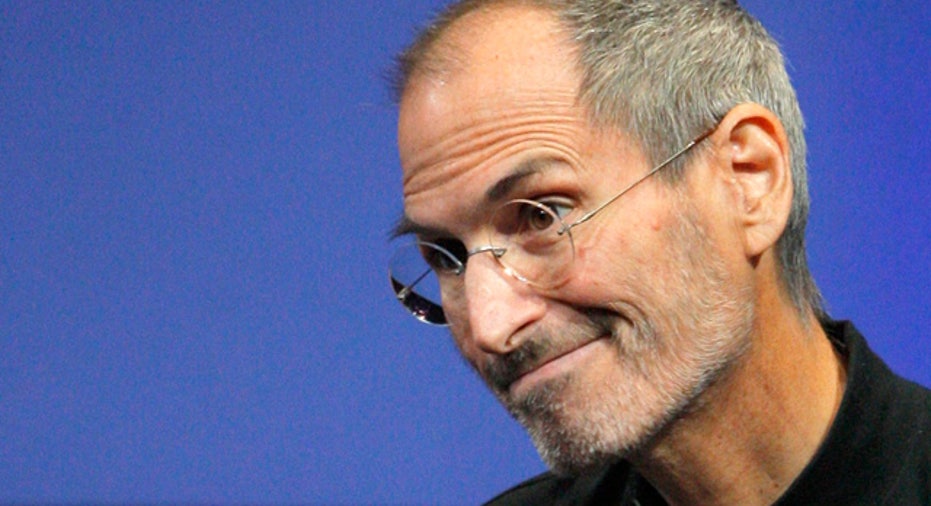Why Elon Musk Is No Steve Jobs

It was the kind of feud the Twitterati live for. When renowned venture capitalist Stewart Alsop took to Medium to scold Elon Musk for showing up late to a Tesla launch event, the CEO decided to teach Alsop a lesson and personally cancelled the former tech pundit’s Model X order.
The Twitterverse instantly erupted with “No Tesla for you!†quips, a throwback to Seinfeld’s infamous Soup Nazi. Indeed, you’d think a serial entrepreneur who runs two companies and chairs a third would have better things to do than to act so petty and vindictive. Apparently not.
Many have called Elon Musk the next Steve Jobs. Maybe in a pejorative sense, but while Musk is a genuine risk-taker who has accomplished a great deal, I think he has some serious issues to work out before proving himself worthy of such comparisons.
Musk’s fans may see him as a clean energy pioneer, SpaceX rocket man and Hyperloop visionary who makes big bets to benefit mankind. But not me. Under the veil of entrepreneurial do-gooder, I see a master manipulator who pushes the limits of media hype and financial engineering to get what he wants.
While the native South African has proven remarkably tenacious in bringing his visions to life, when it comes to time and capital, he seems to have a serious blind spot that leads to chronic overpromising and under-delivering. He has admitted to being overly optimistic, but I think the problem is far more systemic and concerning than just that.
In August 2006 – two years before the first Tesla Roadster rolled off the production line – Musk detailed a long-term Master Plan to deliver “a sporty four door family car,†“a low cost family car†and “solar panels from SolarCity†to help transition us from hydrocarbons to solar electric power.
Prescient as that vision was, it also came with a clever scheme for bootstrapping each new product off the previous one. And therein lies the rub.
That scheme turned out to be a pipe dream that drastically underestimated the time and capital it takes to develop, manufacture and scale electric cars. There’s far more overlap in Tesla’s product pipeline than Musk originally predicted. And that, in turn, has added significant complexity, not to mention funding and delivery challenges, to an already difficult undertaking.
As a result, Tesla is typically about two years behind schedule and has never been profitable. In addition, Musk has been forced to employ ever more creative financial vehicles to fund each successive phase, including government loans, energy tax credits, stock offerings and customer down payments. And he’s not above using one company to bail out another, as evidenced by Tesla’s recent proposal to acquire SolarCity, which is chaired by Musk and run by two of his first cousins.
Meanwhile, the Model X – notably absent from Musk’s original plan – has been plagued by a myriad of quality and delivery problems. Production quantities came up short last quarter. And a recent fatal Model S collision is raising concerns that the advanced autopilot feature was rushed to market without proper testing and customer education.
Which brings us to another less-admirable aspect of Musk’s personality that rears its ugly head from time to time: a penchant for petty self-promotion.
While Musk has been a prolific venture investor and entrepreneur, I agree with those who argue his claims that he is a co-founder of PayPal or Tesla are false. I’ve been around the tech industry for more years than I care to admit, and the only definition of “founder†I’m aware of is someone who was literally part of a company’s creation. That is, until Musk came along.
Strange as it sounds, Musk thinks he deserves the right to call himself a co-founder, regardless of whether he was actually there from the beginning or not.
In 2007, he wrote a 2,256 word justification of co-founder status at PayPal to Gawker Media, even though the PayPal service was launched at Confinity by founders Max Levchin, Peter Thiel and two others long before it merged with Elon Musk’s company, X.com.
According to TechCrunch, Tesla was actually founded in 2003 by Martin Eberhard and Marc Tarpenning. Musk led the company’s Series A round of funding and became chairman, but he was not actively engaged with Tesla from the start. Eberhard sued Musk over this, but eventually settled and granted him the rights to the title.
Gawker says Musk has a ‘founder’ fetish. That sounds about right. While odd compulsions are not necessarily concerning, obsessing over minutiae can be a real problem for someone with extreme micromanaging tendencies and as many gigs as Musk has going on. Simply put, he does not have the time to waste on trivial matters.
Iconic tech pioneers like Jobs, Bill Gates, Jeff Bezos and Larry Ellison all had notable dark sides, but they overcame their issues and built enormously successful growth companies whose products changed our lives. And they created company cultures capable of sustaining that legacy for decades to come.
To join that elite group, Musk must do the same. He has his work cut out for him.



















